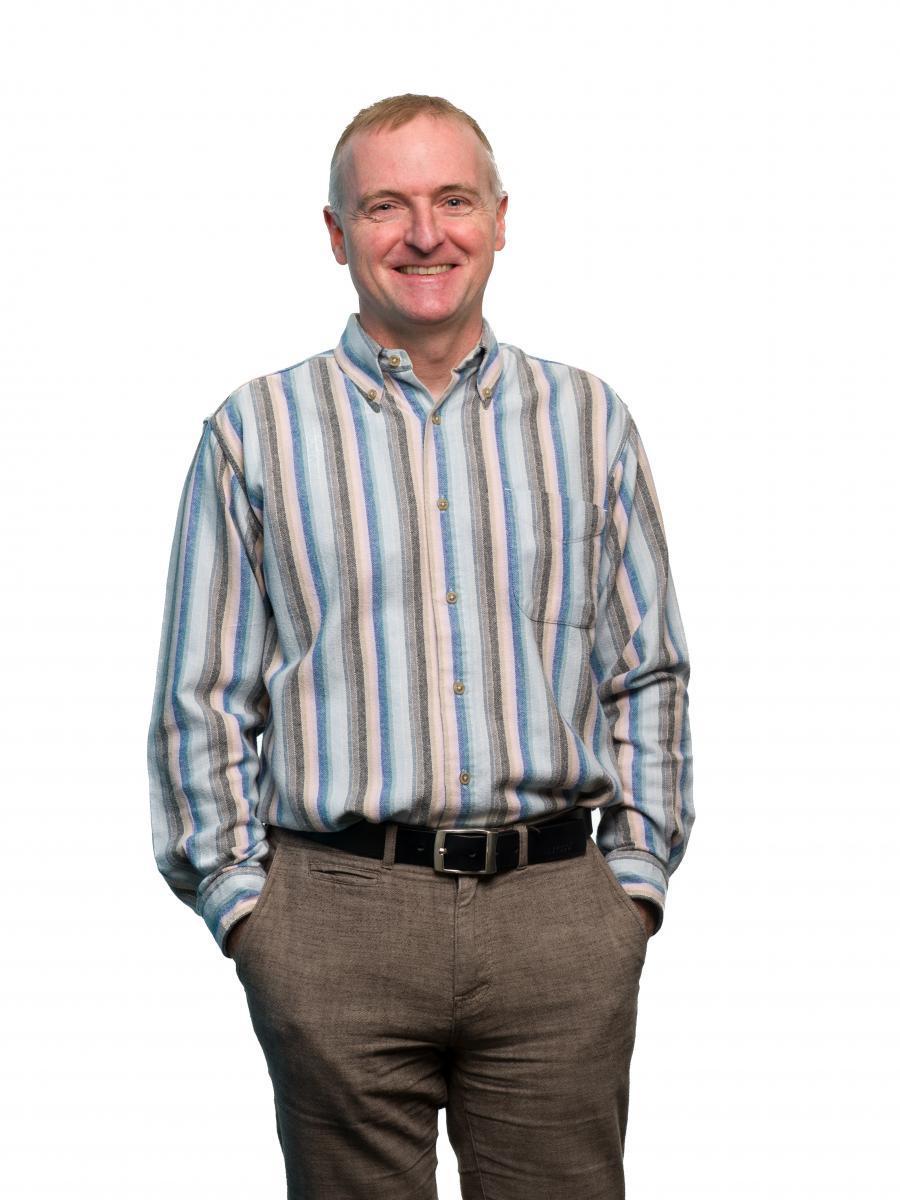Laurent (Editor)
What attracted you to become a language professional at the United Nations?
I had been working as a translator before joining the United Nations. I thought that working as an editor, who intervenes at the writing stage, I could make a bigger difference to the quality of a text and be more satisfied. I applied for a documentation officer position at the secretariat of a convention that entailed a lot of editing, but also many other tasks. Years later, I felt like moving on, and a lot of the vacancies that I was looking at required candidates to have passed the competitive examination for editors. I passed the examination in English and French and applied for different positions, which eventually led me to an editor position at Headquarters, and from there to the United Nations Office at Vienna.
How do you find working for the United Nations different from your previous jobs?
I was, and still am, absolutely delighted by the cosmopolitanism of the United Nations. I do not think that I could ever go back to working in a place where everyone comes from the same country or culture. I am still impressed by the diversity of backgrounds and high level of expertise of my colleagues, as well as by the knowledge, dedication and professionalism of some of the people whom I have worked with.
What do you consider to be the key traits of a good editor?
Editing, like translation, is definitely and inexorably a job for people who are detail-oriented. A good United Nations editor is probably someone who is willing to adapt to the specificities of a myriad of clients and to forego clarity and, sometimes, grammar, for the sake of preserving negotiated language or sensitivities. It also takes some psychological firmness to read, day after day, harrowing reports and accounts of what is going on in the world.
What part of your job do you consider the most interesting?
The diversity of the topics we touch on and the variety of languages we work in.
What challenges do you face in your daily work and how do you handle them?
I would probably say the constant heavy workload and tight deadlines. Fortunately, the teams are composed of people who are very dedicated to their job, extremely professional and, last but not least, very nice, which really helps with tackling those challenges. At the United Nations Office at Vienna, the technicality of the topics dealt with is clearly an issue, and one has to immerse oneself in new areas of knowledge to be able to provide the required level of editing, but this continuous learning is also for me a great motivation. Ending a work day having learned something that one did not know before can be extremely satisfying.
How often do you come across words or phrases you are unfamiliar with? How do you deal with them?
All the time! UNTERM (the United Nations terminology database), online resources, dictionaries, my colleagues and the submitters of the documents that we work on are all resources that I rely on.
What are some of the most difficult documents you have worked on?
I remember a 40-page report on sea cucumbers that was quite tedious, and another document on financial instruments that was full of incomprehensible technical jargon from start to finish. On the whole, however, more than highly technical or extremely politically sensitive documents that can only be approached with the accuracy of a brain surgeon about to operate, the documents that I find most frustrating to work with are those where the meaning is unclear.
What do you think about the evolution of technology in your field of work? How has it affected you?
Technology is extremely important in our line of work. Computer-assisted translation has become standard practice and a related application is currently under development in-house for editing, not to mention other electronic resources that we use daily, such as UNTERM.
Do you have any advice for budding language professionals? Any tips on how to prepare for the competitive examinations for language positions?
Previous editing and, now that there is a combined examination for editors and translators, translation experience would of course be a clear advantage. An internship in one of the United Nations editing or translation sections could also be very beneficial, as editing at the United Nations is very specific. Interested candidates could also test themselves at home by mimicking examination conditions.


